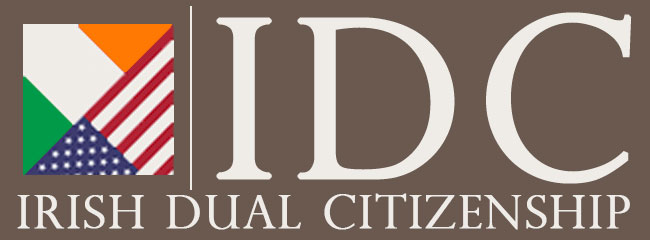If you have become an Irish citizen by descent you can access the benefits of Irish citizenship, such as being able to live and work in Ireland without a visa.
In addition to this, being an Irish citizen means EU citizenship, and this grants the right of free movement to live, work and study in any of the EU member states.
In 2025 the Passport Index placed the Irish passport joint third in the world for its “power of passport”, given it allows visa-free travel to 120 countries.
Ireland Immigration Authority
The Irish Naturalisation and Immigration Service (INIS) is the department that is the designated authority in relation to managing and processing visa applications.
Information about the various visa types can be found on the Immigration Service Delivery page (ISD website), and, depending on the purpose of your travel, the Irish visa application system will determine what type of visa you require.
EU citizens right to travel and live in Ireland
EU citizens can live and work in Ireland without the need of a visa, however if you have non-EU or UK citizen relatives who wish to join you, they may need to show they have financial means and meet thresholds that prove they can live in Ireland and not “be a burden on the State”.
EEA (including the EU, Iceland, Lichtenstein and Norway) and Swiss citizens and their relatives can travel to Ireland and stay there for up to 90 days.
Non-EU citizens
Non-EU citizens in most cases will need a visa to live and work in Ireland, although relatives who meet the threshold as a “skilled worker” can work in Ireland and have certain rights. The Irish Service Immigration home page- INIS website– will have all the relevant information.
For non-EU citizens, it is required that you apply for a visa before your arrival in Ireland. Upon entry, you must show the documents and passport at immigration control, and not having the appropriate documents might mean a refusal of entry.
In respect of any children you may have, they will need a visa, also.
If you register with the INIS, an Irish Residence Permit will be issued, and this supports that you have recorded your details with the Irish immigration office.
Types of visas
The following are a list of the various visas INIS is responsible for issuing:
- Short-stay visas
- Long-stay visas
- Re-entry visas
- Multiple entry visas
- Transit visas
Short-stay visas
Short-stay visas, Type C visas, are designed for those who plan to be in Ireland for up to 3 months. This option is for individuals who intend to travel to Ireland to visit in the capacity as a tourist, to visit a friend or family member, complete a short course in education, or conduct business. The primary categories that short-stay visas cover are the tourist visa, short-term study visa, family/friends visa, conference/event visa or business visas.
It is important to note that this visa does not allow stays longer than 90 days, and so if you intend to stay longer than 3 months, it would be required that you leave the country and make another application for the relevant visa.
Long stay visas
Ireland’s long stay visas, long stay ‘D’ visa, are designed for those who for plan to remain in Ireland for more than 90 days. They are for individuals who plan to work, join family members, or study for lengthier durations in Ireland. Non-Irish and non-EU citizens must apply for a long stay visa (category D visa) if they intend to live in Ireland. The long-stay visa options are: work visa, student visa, spouse/joint family visa (for those who plan to live in Ireland with an Irish spouse or civil partner for longer than 90 days), volunteer visa and researcher visa.
Once a long stay ‘D’ visa has been issued, and you have traveled to Ireland, you will also need to register and apply for an Irish residence permit.
Eligibility criteria
To meet the eligibility criteria for a long stay (D) visa, you will need to: be at least 18 years old; of good character; married to or in a civil partnership with an Irish citizen (the marriage or civil partnership that is recognized by Irish law); plan to reside on a permanent basis with your spouse/civil partner in Irelant, and have a spouse/civil partner that earned an income of at least €40,000 in the last three years.
Re-entry visas
Re-entry visas are for individuals who hold an Irish Residence Permit who intend to leave Ireland for a short period. If you hold a valid Irish Residence Permit (IRP), you do not need a re-entry visa to re-enter Ireland. Children (under 16) can not be issued with an IRP, but if they are traveling with parents or guardians who have an IRP, they can re-enter Ireland without a re-entry visa.
Multiple entry visas
Multiple entry visas are for those who make multiple trips to Ireland between two specific dates. The visa issued is valid only for a single entry to Ireland; meaning that if you leave, you will need to make another application to secure the relevant visa to be permitted to re-enter Ireland.
If you had secured the single entry visas before, and satisfied the criteria, you can apply for a multiple entry visa, which can be sought if you travel on a regular basis to Ireland for work as it allows you to travel to Ireland multiple times in the period that the visa is valid.
Transit visas
A transit visa is a specific visa that is for those who are making a connecting flight at an airport in Ireland. The INIS website will contain information about what transitions require one.
This blog has detailed the different visa options for individuals who wish to reside in Ireland. If you would like to know more about applying for Irish citizenship, you can contact us directly and one of our friendly expert advisors will be in touch to answer your questions.




